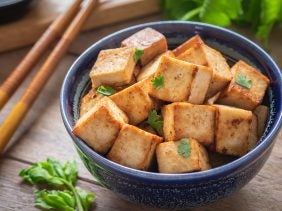Isotonic Drinks: Are They Really Useful?
 ©TommasoT
©TommasoT
As for isotonic drinks, the idea is that you have to earn them. Water is fine as hydration for most workouts, but when you’re training hard, in extreme heat and giving it your all out there on the track, you deserve those neon-colored liquids. Isotonic drinks, soluble tablets or powder packets are low in sodium and rich in mineral salts such as potassium. Their purpose is to hydrate and replenish the body’s electrolyte reserves after a training session.
What Are Electrolytes and Why Are They so Important for Our Body?
Electrolytes are electrically charged minerals found in blood, urine, tissues and body fluids. They are key to the proper functioning of the human body. Calcium, potassium, chloride, magnesium and phosphate are some of the different types of electrolytes that are absorbed through the foods and fluids we consume. Information from the National Library of Medicine explains the many reasons why these minerals are essential for our body:
- They help balance the amount of water in the body.
- They favor PH balance.
- They transport nutrients to the cells.
- They eliminate waste from the cells.
- They ensure proper functioning of the muscles, heart, brain and nerves.
In 2021, the publication Revista Sanitaria de Investigación, published its Electrolyte Investigation, where it indicates the minimum indicated blood quantities for each of the most important electrolytes found in the human body. The information is as follows:
Sodium: The estimated minimum requirement is 500 mg per day. Sodium is involved in conducting nerve impulses and also in muscle contraction. When there is a decrease in sodium in the blood, muscle cramps, nausea, vomiting, vertigo and shock may occur.
Chlorine: Minimum blood levels of 2000 mg are established. Its functions are similar to those of sodium, but intracellular. Chlorine is responsible for transporting glucose to the cells and deficiency can lead to loss of appetite, muscle cramps, apathy, cardiac arrhythmia and, in hyperkalemia, inhibition of cardiac function.
Calcium: Calcium represents almost 2% of the body’s weight and is the most abundant mineral in our body. Calcium forms the fundamental basis of the bone skeleton and is essential in the process of blood coagulation. It is also essential as a stabilizer of the cell membrane.
Magnesium: Magnesium has biological functions related to calcium. It is very important for a low intracellular calcium concentration. This electrolyte is key to the functioning of multiple enzyme systems, such as carbohydrate metabolism, protein synthesis and nucleic acid synthesis. When there is an excess of magnesium in our body, hypertension, nausea, loss of reflexes or vomiting may occur.
If you are running a marathon or are a triathlon athlete, where there is intense dehydration, you may benefit from carrying an isotonic drink in your sports bag. A study published in the Journal of Physical Therapy Science indicates that there are benefits to consuming these types of drinks when ingested right after a long, intense session. This other study highlights the benefits of consuming fluids with electrolytes to replenish during high intensity exercise.
Sugar and Isotonic Drinks
One thing to bear in mind: sugar. Unless you consume a sugar-free version, you should assume that isotonic drinks contain large amounts of sugar. This is one of the reasons why they taste so good and why many health authorities have raised the alarm about the consumption of this type of beverage.
It is true that, in order to hydrate and replenish electrolytes, it is not necessary to ingest large amounts of sugar, but the same study mentioned above points out that for a sports drink to help combat dehydration during sports activity, it must “provide mineral salts, carbohydrates and increase water absorption by combining mineral salts and sugars”. Thus, in many of the isotonic drinks available we find amounts of sugar ranging from 15g to 20g per 250 ml. The daily amount recommended by the World Health Organization is 50g.
In any case, if you are going to consume isotonic drinks, do so in moderation and only when your training sessions are long and intense, otherwise you have other options.
Alternatives to Isotonic Beverages
If you prefer to avoid these types of beverages, there are a few other options to consider:
– Electrolytes are available in effervescent tablet form with a sugar-free formula.
– Coconut water is rich in potassium, sodium and has some sugar as well, which makes it a good substitute for isotonic drinks.
– Did you know that you can make your own isotonic drink at home? All you need is sugar, baking soda, salt, lemon and water. Gather all the ingredients to your liking, and enjoy your homemade isotonic drink.
Learn more about this topic at foodspring:
- Why is getting a good nights sleep more important than the number of hours you sleep?
- How fast can you master our new extreme HIIT workout?
- Caffeine: Dosage, Effects, and Alternatives
Sources for this article
We at foodspring use only high-quality sources, including peer-reviewed studies, to support the facts within our articles. Read our editorial policy to learn more about how we fact-check and keep our content accurate, reliable, and trustworthy.






















